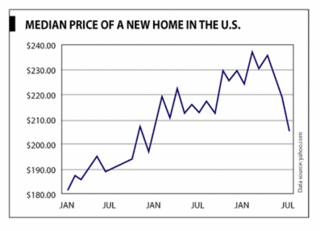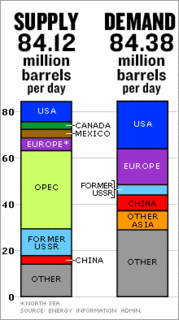Of Motorways and Mayan Temples
What do motorway bypasses and Mayan temples have in common? Both are the manifestations of a highly developed culture, but they are also a symbol of the inherent weakness of two very different societies.
The city states of the Maya people flourished in central America between 250 AD and 900 AD. They were not the first nor were they the last civilisation to rise and fall in the region, but they have left us some of the most elaborate and puzzling ruins.
From the moment the first Europeans set eyes on the huge pyramidal temples deep in the jungles of Mexico and Guatemala mystery has surrounded the decline of Maya society. But, over the years, archaeologists, historians and other academics have slowly pieced together the factors that led to entire cities being abandoned to the forces of nature.
Mayan cities centralised power on vast temple complexes that kept subjects in their thrall with elaborate and grisly rituals. The land surrounding these temple cities was cleared of the jungle and intensively cultivated. Trade between cities took place and at the height of their power the Mayan cities supported population densities comparable to any other part of the globe at the time.
But the removal of jungle from the land removed the key input of fertility to the soil. As time went on the area of land under cultivation increased and the control of the temples and kings continued to grow.
In years when the region was affected by drought, the land, already precariously depleted of nutrients, would support only fractions of the crops needed to feed the population. Before long even in normal years the yield of agriculture was barely adequate to support the populations. And yet temples were still being built. It seems as though as the countryside became depopulated the temple centres became suicidally powerful, insisting that only more bloodletting would placate the gods. And so sometimes in the space of only three generations many of the Mayan cities had gone from the apex of their power to being completely abandoned.
The crumbling temples are a lasting reminder of the inadequacies of the Mayan response to their deteriorating environment. It is questionable whether there was any way that they could at the time avoid the limitations placed on them by nature, but the effort expended on temple construction would almost certainly have been better employed elsewhere.
And the same goes for motorway bypasses. Here in New Zealand, just as in much of the western world, the amount of traffic on our roads continues to increase every year. People now find that it is increasingly difficult to live in western society without a car. Everything from going to work to taking the kids to sports on the weekend relies ever more on the use of cars. Cities now often sport rings of ex-urbs, like necklaces of pearls, which are almost totally reliant on cars to function.
So what we need of course is more roads – more and bigger roads. More big roads virtually everywhere. And the roads we have need to be improved and maintained. And of course we are going to have to pay for all of this somehow.
The problem now is that the cost of roading projects has increased in recent years with the cost of fuel rising. Arguments rage over how we are going to pay for all of these projects, and which ones are going to get priority.
Behind all of this angst and recrimination is a completely unexamined assumption: the number of cars on the road will continue to increase indefinitely. The alternative is so challenging to capitalist economies that it is literally never discussed. Studies and strategy documents are not produced discussing how we should plan our road spending based on an expected decrease in the use of private motor vehicles.
With the advent of peak oil the situation for private motor vehicles in their current incarnation is extremely insecure. As liquid fuels become less readily available cars are going to be the frontline of a battle to reform our energy use. And this doesn’t mean simply changing to hybrid cars, or biodiesel. These remedies are almost certainly going to be unable to mitigate the adverse effects of irreversible decline in oil production.
Unless we take steps now to halt spending time and energy on projects that will one day be like vine covered Mayan temples, then we will have no one to blame but ourselves, and what’s more, our descendents will curse us for our prodigality.
We need to focus on what kind of policy and infrastructure will allow us to engineer the softest landing possible in a post peak oil world. We have no excuse for making the same kind of mistakes the Mayans made – the knowledge is out there to change the way we live for the better. But we need to make the hard choices now, rather than having options taken from us through inaction.
Here are three suggestions for ways that we can begin to address the problems that confront us.
1. An end to population growth.
This is the most important and most difficult aim to achieve. No good can come in the long run of an increasing population. It may serve people’s ends in the short or medium term, but there is no way that this planet can allow an ever increasing number of humans to live comfortably. All other solutions are subordinate to this. Let’s not allow nature to control our population for us – that’s sure to get ugly.
2. Relocalise living arrangements.
An existence based around increasing use of fossil fuels is in fact even more unsustainable than increasingly intensive land use. Land renews, fossil fuels do not. The solution is to reverse the trends that have led to people living remote from the source of the food that they eat, and remote even from their workplace. This is a model that is destined to fail.
3. Begin decentralising electricity grids.
If private transport is to continue in the future it will undoubtedly rely not on liquid fuels, but on electricity, either directly or in the form of hydrogen. If the world’s electricity grids are to deal with this then they will need to move to what is known as a smart grid – distributed generation by renewable methods. When each household can be as much of a generator of energy as it is a consumer then we will be closer to a sustainable model for habitation and transportation.
These are not in and of themselves solutions to the problems we face, but they are starting points. One thing can be reasonably certain – an unwillingness to look deeply at the problems that confront us will leave us just as vulnerable to a descent into chaos as the Mayans of the tenth century were.
Technorati tags: peak oil energy decline






